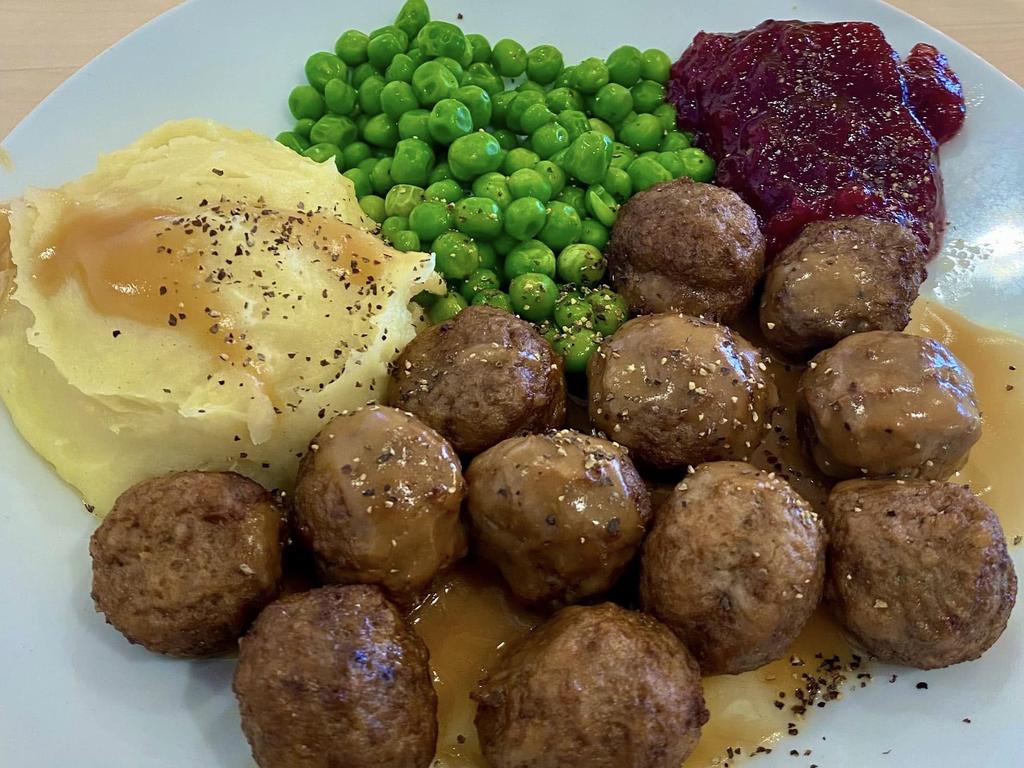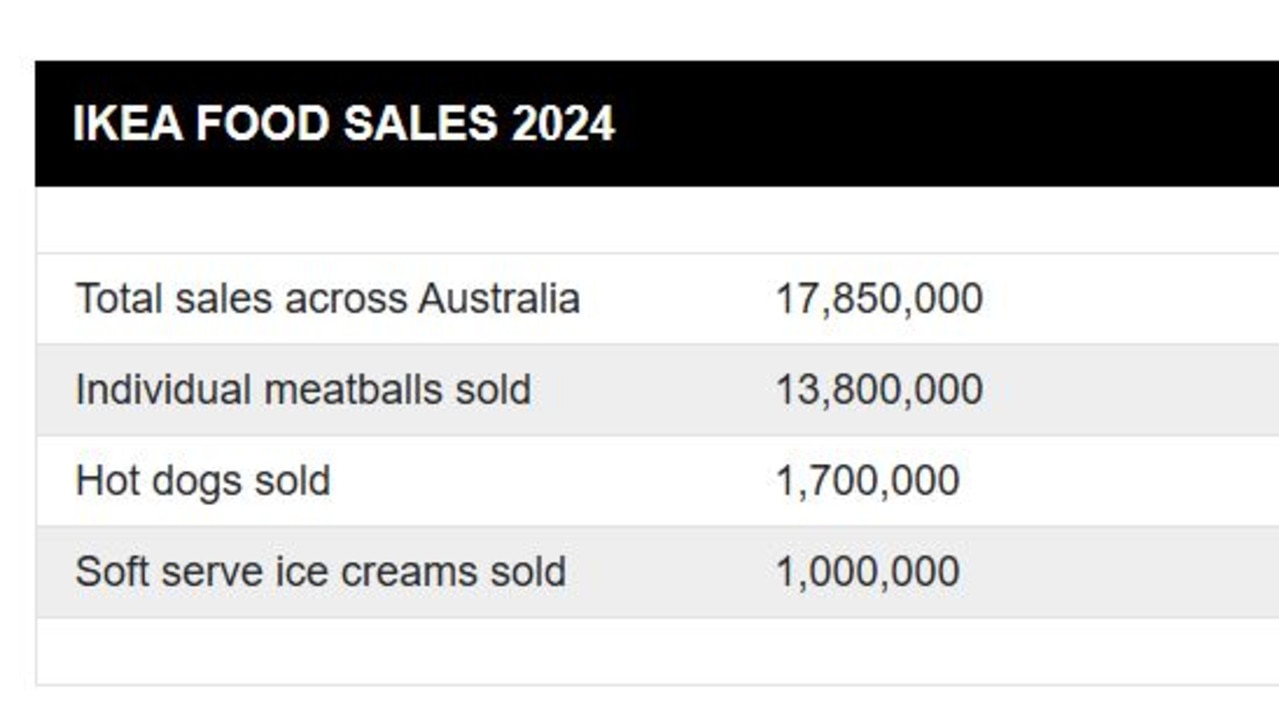13.8 million meatballs sold: Ikea food sales outpace furniture
A popular furniture retailer has revealed the surprising item Aussies are buying the most.

Aussies are flocking to Ikea but not for the reason you would expect, with the furniture juggernaut saying its food business is outperforming the rest of the business.
Flagging the rising cost-of-living pressures on households, Ikea says more people are heading to the furniture store as a way of getting a cheap meal.
Ikea Australia chief financial officer Ricardo Pereira told NewsWire the food business was outpacing the furniture arm of the business.
“Usually, it’s a reaction to when people have less money. People tend to eat out where they can afford and in this case Ikea food is very affordable with a very good choice,” Mr Pereira said.
“We are very happy about that, we will keep trying to develop the range.”


Led by a spike in meatball sales, which are similar to the rest of the world, Mr Pereira said the company would continue to develop the menu range for customers.
“The meatballs sell very well, as Australians are a meat-loving country, but we try to offer other dishes to customers,” Mr Pereira said
“We have chicken and chips, salmon to show the Swedish identity and the business of Ikea food has been growing a little bit faster than the home furnishing.”
While sales fell, Ikea became profitable again in 2024, increasing net profits to $51.3m in the year after a $48.4m loss in 2023, according to financial statements provided by Ikea.
Sales were down 3.17 per cent to $1.725bn across FY24.

It is a similar story overseas, with Inter Ikea Group confirming that its retail sales for the financial year 2024, which ended on August 31, fell 4 per cent to 45.1 billion euros ($A73.15 bn).
Ikea’s slowing sales matches the broader Australian economy, with Australian Bureau of Statistics figures showing anaemic economic growth.
The data released on December 4 showed GDP grew 0.3 per cent thanks largely to government infrastructure projects and energy rebates. For the 12 months until September 2024, the economy grew by 0.8 per cent.
But households are largely spending less and business investment remains subdued, with GDP growing by negative 0.3 per cent on a per capita basis.



